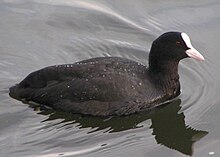| The Yellow Kid |
When did companies begin to merchandise cartoon characters? Nowadays, if a cartoon character doesn't have corresponding action figures, lunch boxes, pencils and stickers, it is considered a commercial failure. The first comic strip character to be merchandized in this way was R.F. Outcault's bald, nightshirt-clad Yellow Kid. His name and image were lent to a brand of gum, toys and even cigarettes. Born on January 14, 1863, Outcault was considered the father of the modern comic strip. He went on to create the even more popular cartoon strip Buster Brown, about the titular mischievous little boy. The name was later acquired by the Brown Shoe Company, which became known as Buster Brown Shoes.
"Humor has historically been tied to the mores of the day. The Yellow Kid was predicated on what people thought was funny about the immigrant Irish. When you're different in a society, you're funny." — Will Eisner
The rise of the corporate estate, she writes, also reflected the Jeffersonian mores of a nation that from its earliest decades loved "to turn its back on cities and stake a claim on the suburban pastoral idyll — isolated, proprietary, verdant, and disengaged from civic space." Those adjectives, of course, perfectly describe the planned Apple headquarters. There are unmistakable echoes in Apple's new building of the headquarters of Merck, the pharmaceutical giant, in suburban New Jersey, a campus designed by Kevin Roche John Dinkeloo and Associates.
"Churchill was the greatest Englishman and one of the greatest human beings of the twentieth century, indeed of all time. Yet, beyond that bald assertion, there are infinite nuances in considering his conduct of Britain’s war between 1940 and 1945"
--from WINSTON'S WAR: Churchill, 1940-1945 by Max Hastings
--from WINSTON'S WAR: Churchill, 1940-1945 by Max Hastings
Winston’s War is a vivid and incisive portrait of Winston Churchill during wartime. Here are the glories and triumphs, the contradictions and blunders of the man who, through sheer force of will, kept Britain fighting in 1940. But as the tide of the war turned, historian Max Hastings shows how Churchill was often disappointed by the failure of the British Army to match his hopes on the battlefield, and by the difficulties of sustaining the wartime alliance not only with the Soviet Union, but also with the United States. With surprises on almost every page, Winston’s War is a riveting profile of one of the greatest leaders of the twentieth century. READ an excerpt here:http://knopfdoubleday.com/book/76749/winstons-war/
bald
ADJECTIVE
(as) bald as a coot
| Coot Temporal range: Early Pliocene to present | |
|---|---|
 | |
| Eurasian coot |
mores[mo・res]
- 発音記号[mɔ'ːreiz]
[名](複)
1 《社会》モーレス:一集団の基本的道徳観を具現している習俗・慣習.
2 道徳観.(môr'āz', -ēz, mōr'-)
pl.n.
- The accepted traditional customs and usages of a particular social group.
- Moral attitudes.
- Manners; ways.
[Latin mōrēs, pl. of mōs, custom.]
沒有留言:
張貼留言